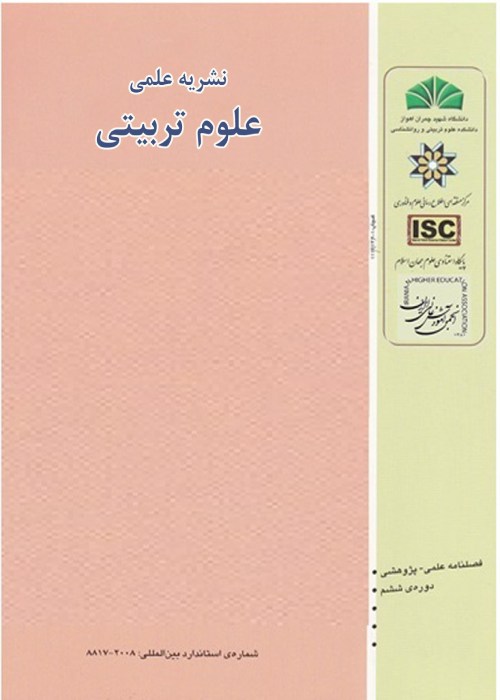Qualitative study of the phenomenon of academic dishonesty among students
Nowadays, Academic dishonesty is one of the issues that has plagued the educational system. The scope of this phenomenon ranged from purchasing an essay, plagiarizing content, fudging laboratory results, falsification, duplication, misusing credit, asking for a deadline extension by citing a bogus excuse, to cheating on the exam session and impersonating another to take a test. It is evident that continuing this process will challenge the reliability of the academic system's performance and has long-term effects not only on the individual, but also on the entire community. Method The purpose of this research was to study the causes and dimensions phenomenon of academic dishonesty in students. A qualitative approach and grounded theory method was adopted in the study, considering the nature of the subject. The target population of the research were all students of Yazd University in the academic year of 1397-98. The sampling method was purposive and theoretical with maximum variation and sustained up to data saturation. Data were collected from 16 students through in-depth semi-structured interview. The obtained results were analyzed using Strauss and Corbin’s open, axial and selective coding methods. Results The results of the investigations that fall into six dimensions of the model include: main phenomenon (performance goal orientation), causes (7 categories), environmental conditions (3 categories), contextual features (4 categories), strategy (3 categories) and outcome (1 categories). Functional goal orientation was recognized as the main phenomenon with three categories including “competition”, “score and degree dependency” and “science learning and service delivery”. The research tool was an in-depth semi-structured interview. Interviews continued until theoretical saturation. The research results showed that the applicability of lessons, individual characteristics, educational background, time limit and weight of lessons, student admission policies, professors' professionalism, and family pressure, has cause the formation of the central category of “performance goal orientation”. Also, contextual features (such as physical conditions, classroom and university atmosphere, technology, and monitoring and dealing) and environmental conditions (cultural-social environment, political environment, and the policy environment), have provide the context of rise students` unethical reactions such as cheating in exam, dishonesty to do homework, scientific theft and dishonesty in research, which have resulted disruption in individual development, social development, and academic development. In conclusion, it can be acknowledged that the phenomenon of academic dishonesty is rooted in the goal orientation of the individual. Several environmental and individual factors can change it, so a comprehensive effort seems necessary in order to amend it.
- حق عضویت دریافتی صرف حمایت از نشریات عضو و نگهداری، تکمیل و توسعه مگیران میشود.
- پرداخت حق اشتراک و دانلود مقالات اجازه بازنشر آن در سایر رسانههای چاپی و دیجیتال را به کاربر نمیدهد.



